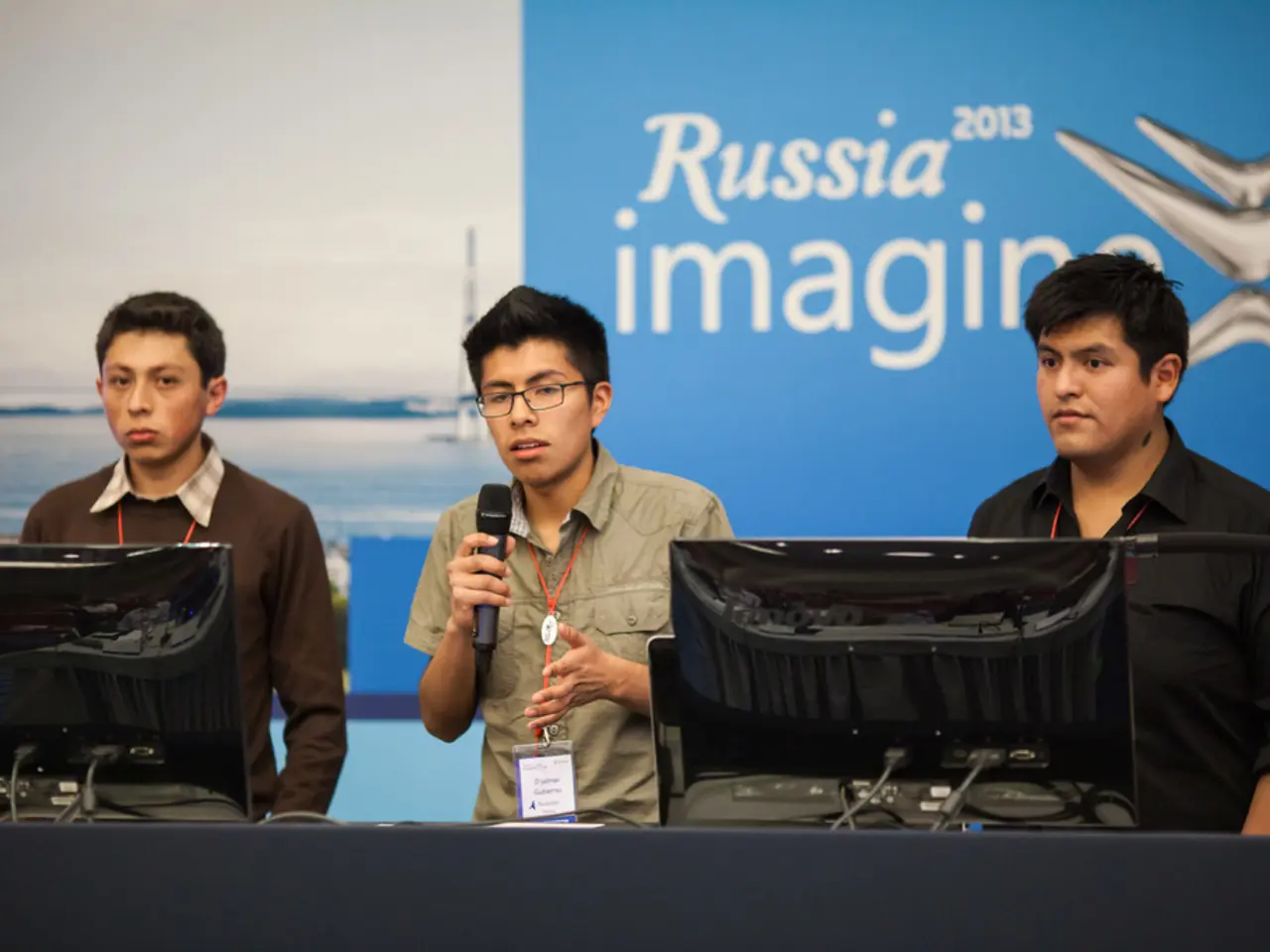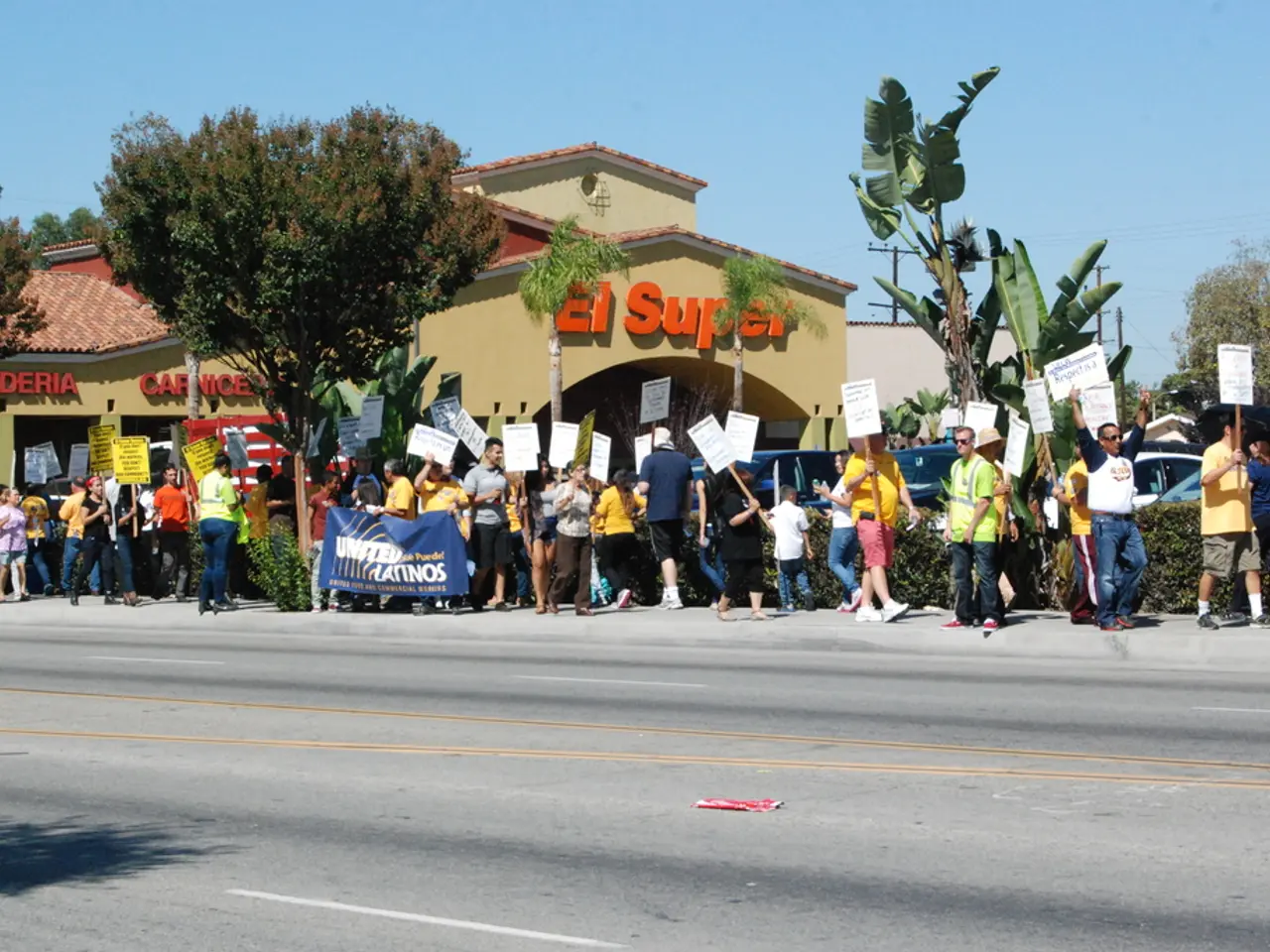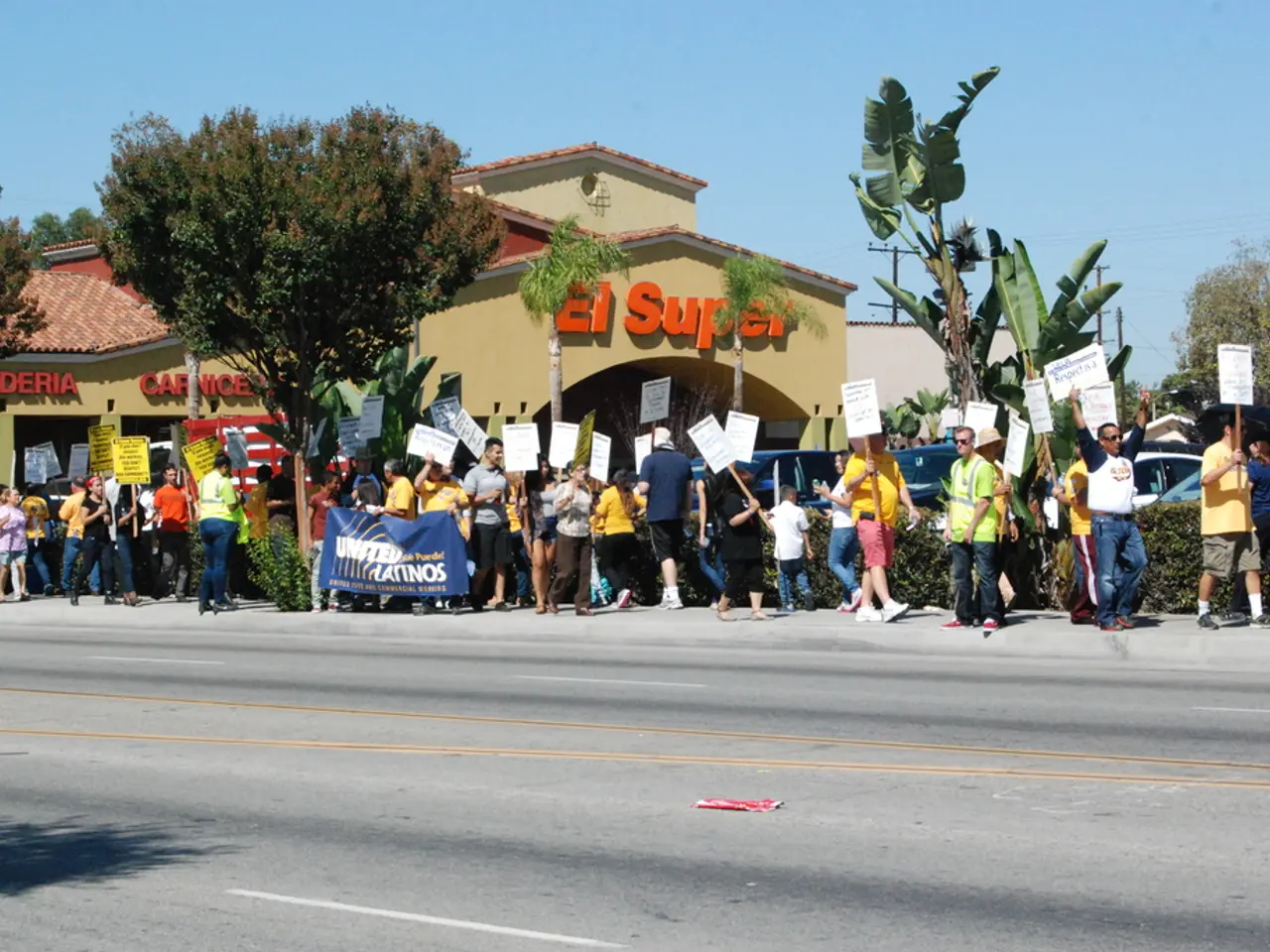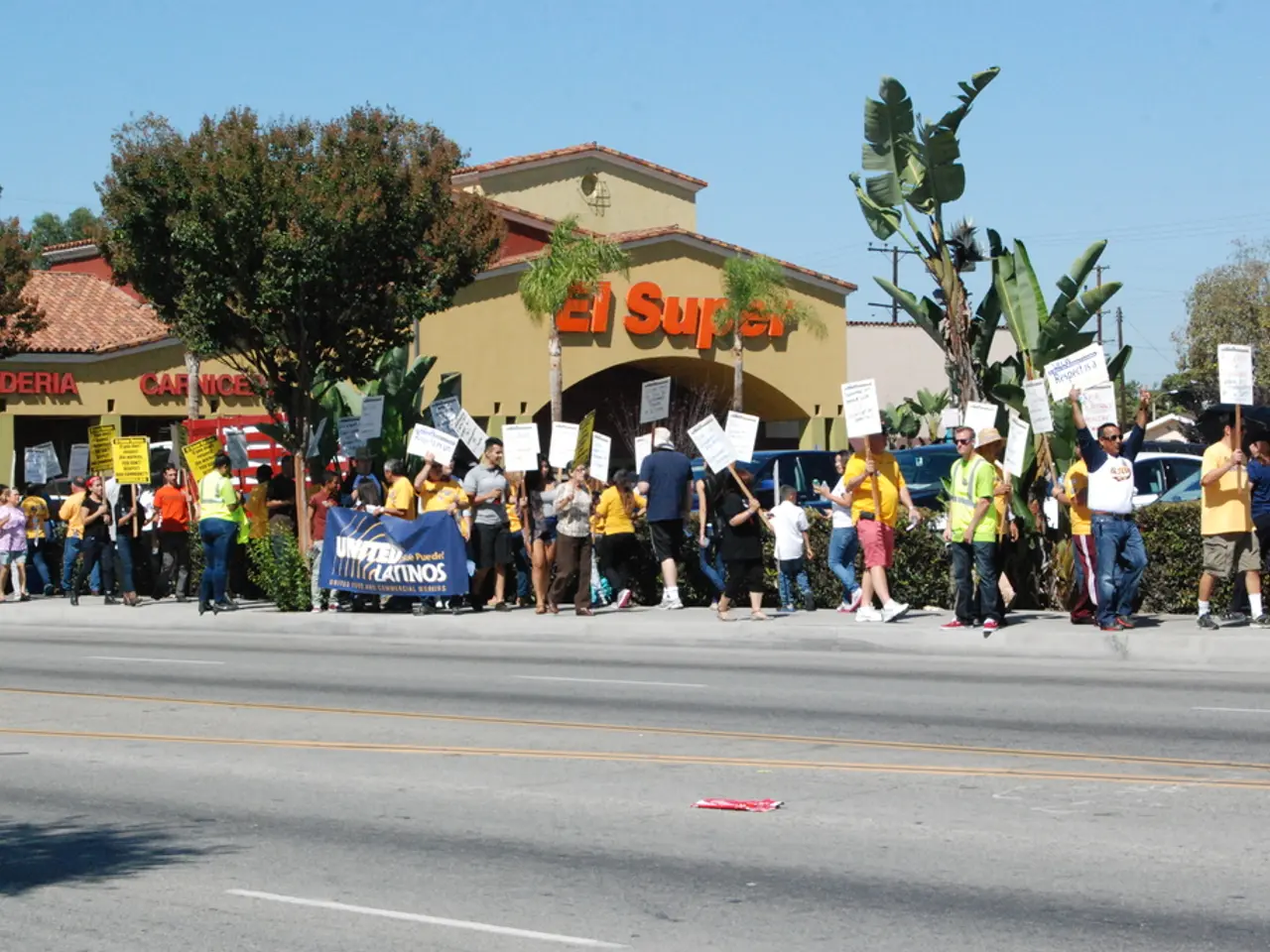Russian Leader Confronted with Warning: 'That's a Trap for the U.S. President' - Russian Politics Analysis: Specialist Claims Putin's ultimatum is a Snare for Trump
In a surprising turn of events, US President Donald Trump has given Russian President Vladimir Putin a 50-day deadline for a ceasefire in Ukraine. This ultimatum, delivered in the presence of NATO Secretary-General Mark Rutte, has sparked a flurry of analyses and predictions regarding its potential impacts.
One of the key voices in this discussion is Christian Mölling, a security expert at the Brussels think tank "European Policy Centre". Mölling believes that the ultimatum is a trap for Trump, as he doubts that the President will carry out his threat of imposing 100% tariffs on imports from countries that continue to buy from Russia, including India and China.
If the agreement with Ukraine is not reached within the deadline, the threat of secondary tariffs could have significant economic implications for these countries, as well as potential disruptions to global oil markets. The effectiveness of these sanctions, however, depends on the willingness of other countries to comply.
In terms of military escalation, if Russia does not comply with the ultimatum, it may lead to further military support for Ukraine, potentially escalating the conflict. This could result in increased military losses for both sides and broader involvement from other nations.
On the Ukrainian front, the supply of advanced weapons, including missiles and air defense systems, could enhance Ukraine's military capabilities, potentially leading to more effective resistance against Russian forces. However, the impact on the war's outcome remains unpredictable without knowing the full extent of the military aid and how it is deployed.
Despite the ultimatum, diplomatic efforts to end the conflict peacefully may continue, with international pressure mounting on both sides to negotiate a ceasefire. The role of NATO and its allies in supporting Ukraine could strengthen unity within the alliance, reinforcing commitments to collective defense and potentially leading to further cooperation in other areas.
Russia, however, has already rejected Trump's ultimatum as unacceptable, indicating that it will not comply with demands for a ceasefire within the specified timeframe. Moscow's official response to the ultimatum has been calm, with former Russian President Dmitri Medvedev describing it as a "theatrical ultimatum". The Russian government may make an offer on a rhetorical level to allow Trump to claim a victory, but Mölling estimates that it will be a sham offer.
In conclusion, the impact of these developments will depend largely on how Russia responds to the ultimatum and the military support provided to Ukraine. Putin will likely judge the U.S. actions by their outcomes, and the ultimate consequences remain uncertain. For more in-depth analysis, listeners can tune into the Stern podcast "The Situation - International", which features an interview with Christian Mölling discussing the implications of Trump's ultimatum to Putin.
The Commission, in response to the diplomatic crisis, is proposing to increase the number of EU-funded projects in the field of education and training as part of a broader policy-and-legislation initiative aimed at strengthening Europe's political and economic independence. This move, coupled with ongoing discussions on collective defense among NATO allies, underscores the general-news theme of increased political interplay and global cooperation in addressing pressing international issues.





